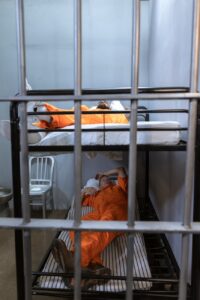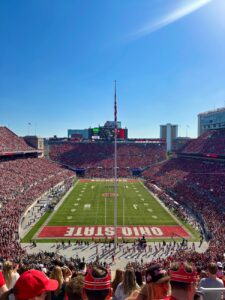State fire marshal issues ban on bonfires
Heather Myers
news editor
[email protected]
College of Eastern Utah has a long tradition of sponsoring bonfires, but due to a memo from the State Department of Public Safety, Gary A. Wise, state fire marshal, and Alan Edwards, director of the division of risk management, no more celebratory fires will be allowed in the state of Utah.
This archived article was written by: Heather Myers
Heather Myers
news editor
[email protected]
College of Eastern Utah has a long tradition of sponsoring bonfires, but due to a memo from the State Department of Public Safety, Gary A. Wise, state fire marshal, and Alan Edwards, director of the division of risk management, no more celebratory fires will be allowed in the state of Utah.
According to the State Environmental Code the only fires that are allowed must be beneficial to agricultural or horticultural purposes such as the controlled burning of orchards or the burning of ditch banks for irrigation purposes. Bonfires do not meet these requirements. The State Fire Marshal’s Office and the Division of Risk Management have jointly decided that bonfires are an unreasonable risk and create too much liability.
This ruling may have been a result of an accident in Fort Worth, Texas on the Texas A&M campus; on November 18, 1999 a 59-foot stack of more than 5,000 logs collapsed, killing 12 and injuring 27. Most of those involved in the tragedy were students.
The decision by the fire marshal and risk management comes three weeks after a settlement was reached the Texas A&M case, in which the families of four killed and three injured in the bonfire five years ago will receive $4.25 million. The settlement also relieves Texas A&M from any responsibility in the fire. However, there are still 36 defendants in the case; bonfire leaders, Ray Bowen, the president of Texas A&M when the accident happened, the Texas Aggie Bonfire Committee, and companies that provided cranes and operators.
The State Fire Marshal’s Office and Department of Risk Management says in the memo that there are alternatives to bonfires and suggests fireworks under the supervision of a licensed pyrotechnician. They claim the use of bonfires sends “a very wrong message to the participants.” Citing incidents of major civil disobedience such as sports events where participants in celebrations set fire to private property.
According to ICC Vice President, Gypsie Delgado, “There are not a lot of things to do in Price, and by taking away the bonfires, it hurts school spirit and a lot of social aspects of college life.”
“Fire should not be connected to a celebration of something that has an otherwise positive outcome,” stated the memo. They claim there is no reason to wait until something goes wrong to take precautions.




